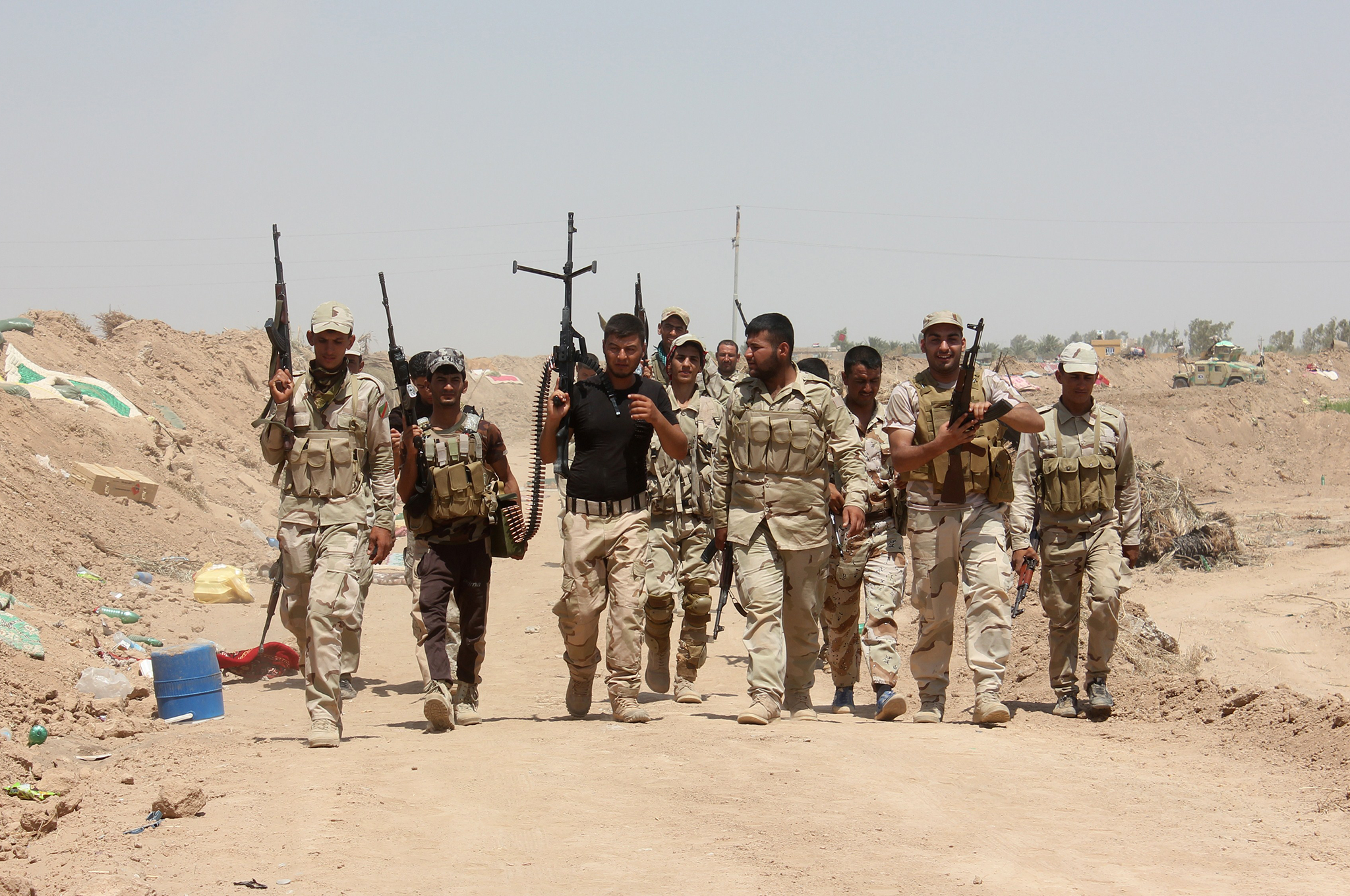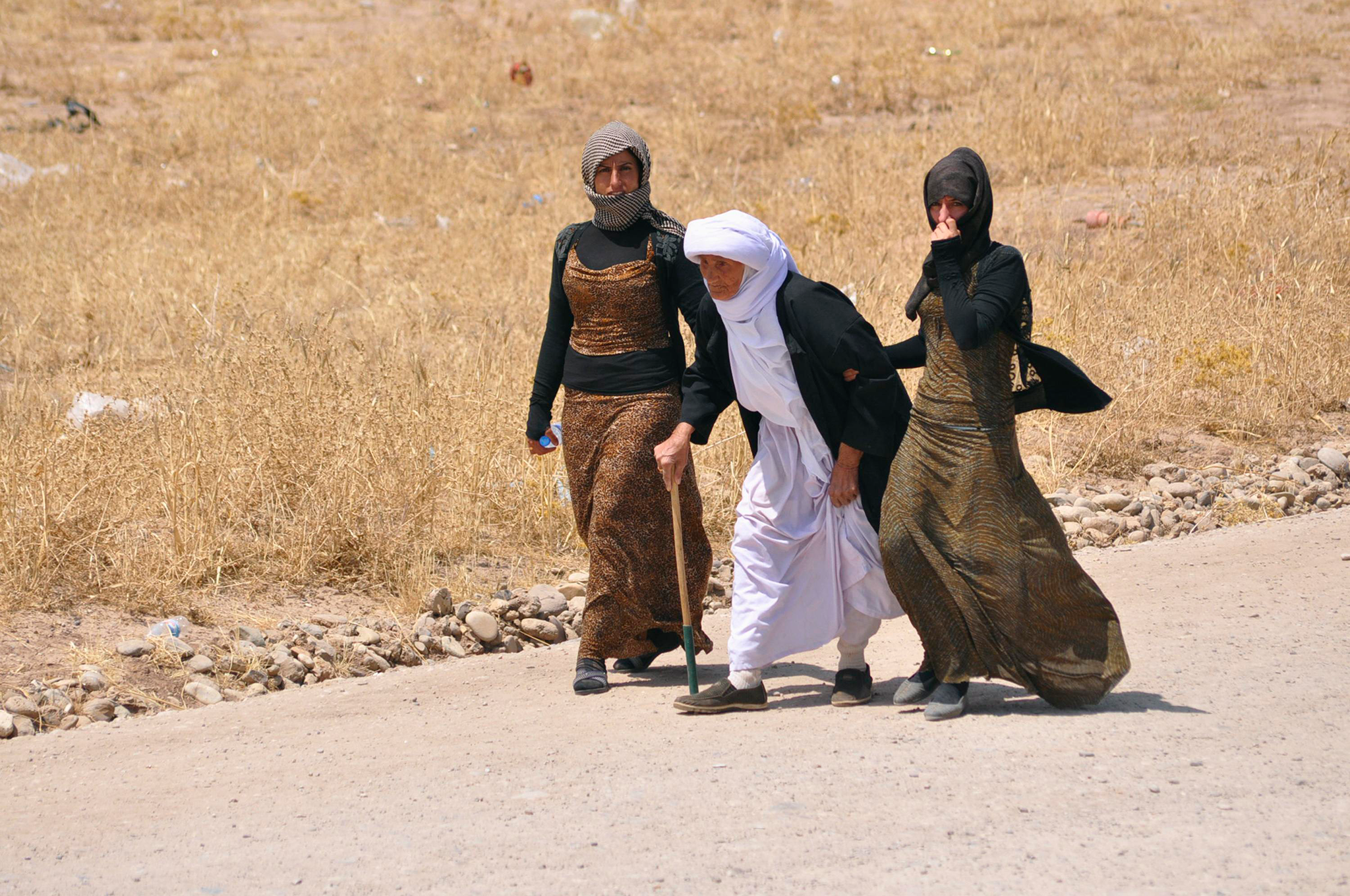Isis takes Iraq’s largest Christian town as residents told – 'leave, convert or die'
Tens of thousands of terrified people have been displaced as Christians flee Qaraqosh

Christians from the town of Qaraqosh were fleeing today after it was taken by fighters from the Islamic State in Iraq and the Levant (Isis) on Wednesday night.
The town had previously been a safe haven for those fleeing Mosul and for those hoping Christianity had a future in the country. “Before we thought we could stay. But now, there is no way Christians can go back to Iraq,” says Abu Maykel, a 29-year-old clerk who fled the village last week.
He hoped he could maybe remain in his ancestral homeland, but had to reconsider when Isis started to close in on Qaraqosh, a Christian village of 50,000 people. The town had been cut off from water and electricity ever since Isis took Mosul. Food had been hard to come by and distant shelling constant, but he remained.
However, 10 days ago, the shelling intensified. “It was less than a kilometre away. Just the sounds of it scared my wife and children,” Abu Maykel explains. The family decided to leave, joining an exodus which has further weakened Iraq’s Christian population.

On Wednesday night, his fears were confirmed as overstretched Kurdish Peshmerga forces left their posts and the town, as well as a string of neighbouring Christian villages, fell to Isis.
Under Isis rule, Christians face a stark choice: convert or die. “I was given three days to decide whether to become Muslim, pay jizya – a special tax imposed on Christians under Islamic rule – or leave,” says Khalil Touma, a 43-year-old driver from Mosul. Adamant that Christians should have to pay no such tax in Iraq and afraid that they might come back later and demand more, Mr Touma chose to leave for Lebanon. In the last month, every other Iraqi Christian has also left Mosul, which was once home to a Christian population of 60,000.
An Isis-issued ultimatum to Christians remaining in Mosul expired on 19 July. Houses belonging to Christians were daubed with the letter “N” – short for Nasare – a Muslim term for Christians which derives from Nazareth, the home town of Jesus. “It’s like being marked with an ‘X’,” said Haitham Hikmat Hermez, 46, a driver who fled.
Properties were confiscated and given to Muslims. Those leaving were not allowed to take much with them. Refugees tell stories of wedding rings being confiscated, some even being cut off with fingers attached to them. They share videos of churches, such as the tomb of Jonah – of Jonah and the Whale fame – being bombed. All are certain there is no future for them in Iraq.
Today it was reported that Washington was considering launching air strikes against Isis and providing direct humanitarian relief to Iraqi religious minorities.
There has been concern about the exodus of Iraqi Christians from the church in the UK. Andrew White, Anglican Vicar in Baghdad, said: “It looks as if the end could be very near,” for Christians in Iraq during a call with Radio 4’s Today on 26 July. On Wednesday, the Catholic Bishops Conference of England and Wales urged for prayers and an end to “the violent persecution that threatens to extinguish the Christian community” in Iraq, while Pope Francis called on world governments to take measures to protect the Christians that have been driven from their villages in Northern Iraq, and to provide them with humanitarian aid.
Appealing to the international community, the Pope called on leaders to “put an end to the humanitarian drama underway, adopt measures to protect those who are threatened by violence and assure them necessary aid, especially urgent for those who are homeless and depend on the solidarity of others.”
But priests here feel that not enough is being done by the West. “All I hear is silence,” says Father George, an Assyrian priest struggling to take care of 40 families that have registered at his church so far. “Where are the States? Where is the UN? Until now, they have done nothing!”
France’s offer of asylum to Iraqi Christians horrifies him, as it does most of Lebanon’s clergy. The country, with its own flailing Christian minority, feels Christians belong in the Middle East. “They should stay here, this is their land” says Father George.
Join our commenting forum
Join thought-provoking conversations, follow other Independent readers and see their replies
Comments